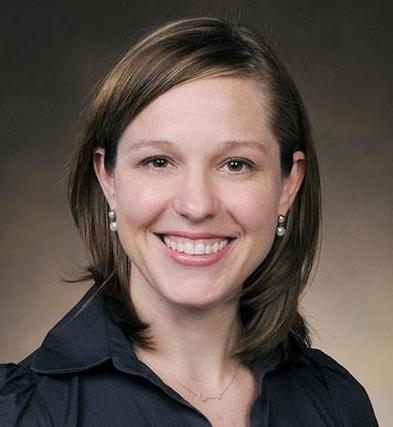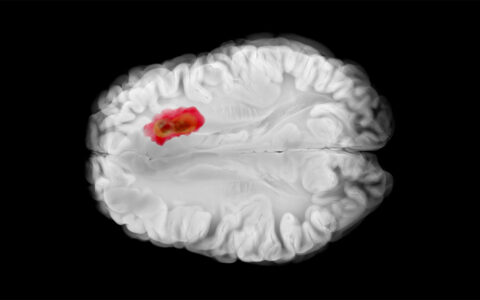Devising better approaches for the treatment of pancreatic cancer is an increasingly urgent task for medicine, as incidence is increasing in the U.S. and it is arising more often in much younger people.
“Older people still bear the greatest share of the burden of this terrible disease,” said Dana Cardin, M.D., an assistant professor of medicine at Vanderbilt University Medical Center. “But with its increasing frequency among young people, it’s having more of an impact on children and on families, and in economic terms, too.”
Cardin recently discussed demographic shifts in the pancreatic cancer patient population in a Journal of the National Cancer Institute editorial, coauthored with Cathy Eng, M.D., the David H. Johnson Chair in surgical and medical oncology at Vanderbilt-Ingram Cancer Center. Vanderbilt recently opened a multidisciplinary pancreatic cancer clinic at its Belle Meade Clinic.
“With its increasing frequency among young people, [pancreatic cancer] is having more of an impact on children and on families, and in economic terms, too.”
Operability in the Eye of the Beholder
Pancreatic cancer accounts for 7.8 percent of all cancer-related mortality, and presents particularly difficult medical challenges. Seldom diagnosed in its early, most curable stages, the disease often causes few or only vague symptoms until it has already metastasized.
Pancreatic adenocarcinoma is not highly responsive to chemotherapeutic agents, Cardin explained. “We can’t achieve a cure without surgery, so before we say that a certain case is inoperable, we have to ask, ‘Is it really inoperable?’” she said. “Pancreatic surgery requires special training, so we want to be sure that an experienced pancreatic surgeon, looking at high-quality imaging, is making that determination.”
Pancreatic surgery is often highly complex, involving vascular reconstruction, Cardin adds. “This is not removing an appendix or gallbladder. Only a few of our surgeons do pancreatic surgery and they do it often,” she said.
Multidisciplinary Teams Ease Patients’ Burdens
Vanderbilt is the only pancreatic center of excellence in Tennessee, Cardin notes. It is a designation awarded by the National Pancreas Foundation to recognize hospitals offering true multidisciplinary care, which not only gives patients the greatest hope and support but also simplifies their many practical challenges (phone calls, appointments, record transfers, etc.) while dealing with such a fraught diagnosis.
“In a multidisciplinary clinic, patients have a more streamlined experience, with all their records and images obtained and collated ahead of time, and with all the people they need to see working together in one place,” Cardin said. Also, needed support services are there for all patients, including those who opt to forego aggressive treatment in favor of palliative care.
“We can’t achieve a cure without surgery, so before we say that a certain case is inoperable, we have to ask, ‘Is it really inoperable?’”
The Vanderbilt clinic staff includes a social worker and a manager in charge of patient- and family-centered care. They can help with diverse services, addressing financial concerns, providing educational resources and helping patients and their loved ones access mental health services. Clinic staff coordinate closely with Vanderbilt Child-Life Services, Cardin says.
No Time Wasted
Centralized, coordinated care can also speed up the initiation of treatment. In contrast, Cardin described the delays that patients can encounter outside a multidisciplinary clinic.
“Getting a biopsy, going for appropriate scans, and arranging appointments with multiple experts can take time,” she explained. “Streamlining these efforts may be important for patients who may have operable tumors, when we are dealing with a tumor that likes to spread early on in the disease course.”
At Vanderbilt, the medical care team for pancreatic cancer patients includes a nurse navigator, medical oncologist, surgical oncologist, radiation oncologist, pathologist and radiologist. The team meets virtually once a week to discuss complex cases.
Caring for Patients Holistically
The Vanderbilt team offers all needed forms of care, including palliative care and symptom management. “Beyond doing the best that we can clinically for the patient, using the right imaging and the right drugs, we have to aggressively support them in other ways,” Cardin said.
Patients often need help managing their nutrition, and dealing with pain, nausea and cachexia. “Depression is also very common,” said Cardin. “We don’t treat tumors. We care for people with tumors.”




